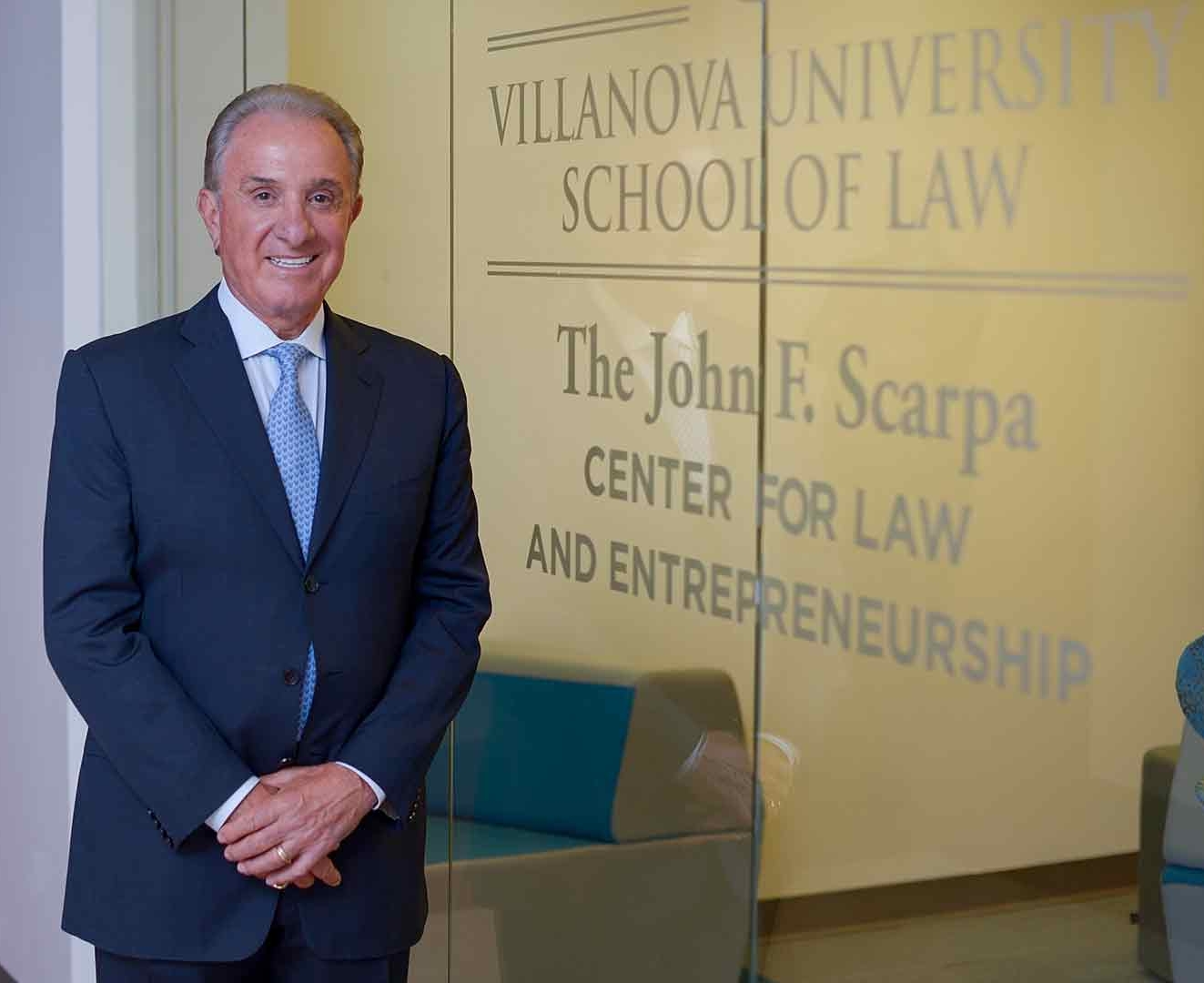Partners in Innovation
Scarpa’s funding in part helps support two key objectives at the core of the John F. Scarpa Center for Entrepreneurship and Law, according to Andrew Lund, JD, director of the center and professor of Law.
One is encouraging lawyers to be more entrepreneurial. Scarpa has said that if the Law School is where law meets business, the center is where law meets innovation. “The idea that you’re an entrepreneur as an attorney—that’s not something we were clued into when I was in law school,” Professor Lund says.
“A clear application is if you hang a shingle and start a small law firm, you need to be an entrepreneur and innovator who understands how to run a business and get clients. And if you work for a firm, whether nonprofit or for-profit, it’s valuable to understand how law is both a profession and a business, how what you’ve learned converts to capital, what the pressures are and how the operation is run.”
The second major objective relates to better serving clients. “To think about clients who are entrepreneurs and understand their concerns allows you to advise them better on legal matters because you comprehend their underlying business,” says Mary Ann Robinson ’79 JD, professor of Law. “That’s critical.”
That’s why Villanova Law, under the auspices of the Scarpa Center, worked with industry experts and leading law firms to design two innovative learning modules that bring Villanova’s where law meets business philosophy to life. Held at the start of the spring semester, these week-long, intensive Business Modules introduce students to key concepts, including financial statements, valuation and the economics of law firms, that are fundamental to success in the legal profession but traditionally are not taught in law schools.
“They are tough, practical courses that are directly related to the entrepreneurial emphasis that Mr. Scarpa has helped us focus on,” Professor Robinson says. “Students don’t focus on anything else during that week, and it’s remarkable to see what they absorb.”
Professor Robinson has directed the Joseph Del Raso Business and Financial Literacy for Lawyers module for first-year law students since 2015. Through the module, students gain exposure to subjects such as Accounting and Finance from a professor in the Villanova School of Business. They work in small groups and put newly learned business and financial concepts into practice. Under the guidance of volunteer practitioners, they work through real-life legal scenarios—such as the negotiation of the sale and purchase of a business.
Such hands-on experiences can powerfully influence students. “Hearing about the Scarpa Center and seeing that Villanova had a dedicated space for entrepreneurship and law was one of the reasons I came to Villanova,” says John Vernon ’19 JD, who is now an associate at Paladin Capital Group, a venture capital firm in Washington, D.C. “I sought out practical experiences.”
In addition to the Business and Financial Literacy module, Vernon participated in the Law School’s Clinic for Law and Entrepreneurship, which allows student attorneys under faculty guidance to advise and assist actual clients on a range of legal matters, such as structuring entities, negotiating contracts, applying for tax-exempt status and complying with regulations. Other opportunities included venture capital competitions in which Vernon helped provide counsel in a simulated deal and, in his first year, went to national finals in California. He also participated in programs through the ICE Institute, which fosters entrepreneurial thinking throughout the University.
“All of these opportunities were excellent,” Vernon says. “Great synergy was already happening between the Law and Business schools, as well as the ICE Institute.”
Ultimately, sparking more innovation will broaden the impact that Villanova students across the University have as citizens of the world. Professor Lund has already seen how Law students benefit from Scarpa’s investments.
“Anecdotally, we’ve asked law firms that hire our students what they think, and partners have said our students really understand business in addition to law and behave in ways that are beyond what they see in students from other schools,” Professor Lund says. “That’s an example of how John Scarpa’s commitment has led to positive outcomes for our students.” ◼︎

